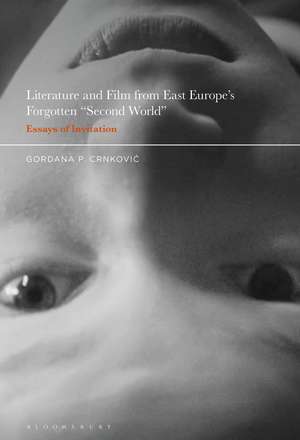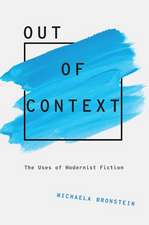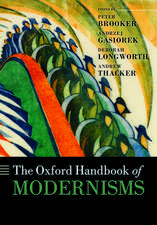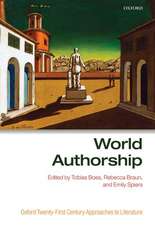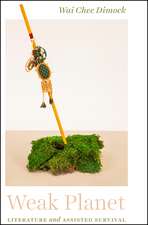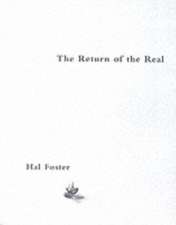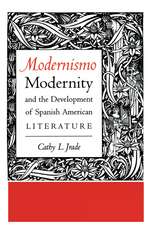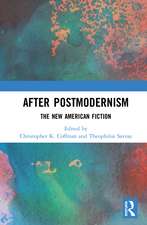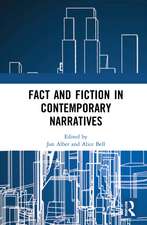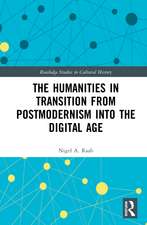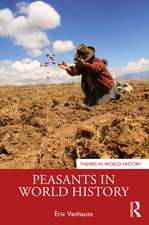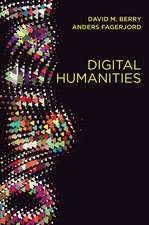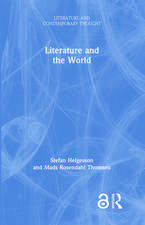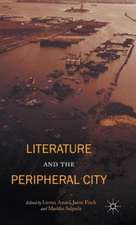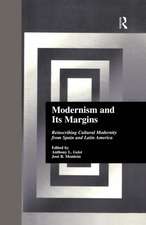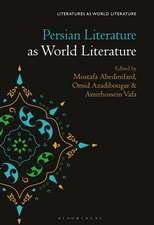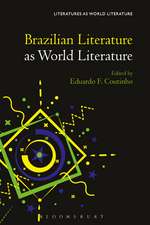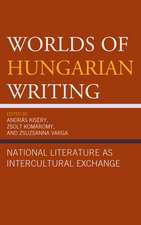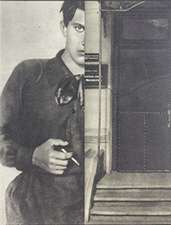Literature and Film from East Europe’s Forgotten "Second World": Essays of Invitation
Autor Professor Gordana P. Crnkovicen Limba Engleză Paperback – 28 dec 2022
| Toate formatele și edițiile | Preț | Express |
|---|---|---|
| Paperback (1) | 190.75 lei 43-57 zile | |
| Bloomsbury Publishing – 28 dec 2022 | 190.75 lei 43-57 zile | |
| Hardback (1) | 539.18 lei 43-57 zile | +114.23 lei 5-11 zile |
| Bloomsbury Publishing – 2 iun 2021 | 539.18 lei 43-57 zile | +114.23 lei 5-11 zile |
Preț: 190.75 lei
Preț vechi: 249.05 lei
-23% Nou
36.50€ • 38.21$ • 30.20£
Carte tipărită la comandă
Livrare economică 07-21 aprilie
Specificații
ISBN-10: 1501370693
Pagini: 232
Dimensiuni: 152 x 229 x 25 mm
Greutate: 0.31 kg
Editura: Bloomsbury Publishing
Colecția Bloomsbury Academic
Locul publicării:New York, United States
Caracteristici
Notă biografică
Cuprins
Recenzii
Literature and Film from East Europe's Forgotten "Second World" delivers much more than its title promises. In addition to providing luminous and mostly jargon-free readings of major prose and cinematic texts, Crnkovic's book tells us how and why to tackle big and sometimes difficult works of art, demonstrating that, even in our sound-bite-addicted age, engaging with such works can change our lives.
Gordana Crnkovic has written an absolutely delightful and inspiring book on an oddly neglected topic: the literature and film of the so-called 'Second World'-Eastern Europe, during its post-World War II years behind the Iron Curtain. The astonishing truth about the fiction and film of this period-whether that of Crnkovic's native Yugoslavia, Czechoslovakia, Poland, Hungary, or Romania-is that far from being a dark and despairing response to the various forms of repression then current, this is a literature of pleasure, warmth, energy, humor, and the overcoming of obstacles, political and otherwise. Crnkovic has chosen key novels and films to show us what we have been missing, and by the time she has finished, we have a whole new reading list and filmography to look forward to. Crnkovic's enthusiasm and keen analytic powers endow the fiction and film in question with the special aura of a mini-Renaissance-one unmatched in the 'First World' of the Cold War.
Gordana Crnkovic's passion for literature and film shines through all these essays. In each of the 15 shorter ones she has penned a charming love letter to the film or book in question, and in each of the five longer ones she provides the deeper sort of scholarly (but still highly readable) analysis for which she is well known. Overall, she has done a great service to these outstanding artists of what used to be 'Eastern Europe' in bringing them to our attention.
[Gordana P. Crnkovic] offers an enlightening path, filled with new possibilities, experiences, and discoveries. ... These "essays of invitation" open the portal to an invigorating world of lesser-known, or lesser-appreciated
Descriere
Czechoslovakia, Yugoslavia-no longer on the map. East Europe of the socialist period may seem like a historical oddity, apparently so different from everything before and after. Yet the masterpieces of literature and cinema from this largely forgotten "Second World," as well as by the authors formed in it and working in its aftermath, surprise and delight with their contemporary resonance. This book introduces and illuminates a number of these works. It explores how their aesthetic ingenuity discovers ways of engaging existential and universal predicaments, such as how one may survive in the world of victimizations, or imagine a good city, or broach the human boundaries to live as a plant. Like true classics of world art, these novels, stories, and films-to rephrase Bohumil Hrabal-keep "telling us things about ourselves we don't know." In lively and jargon-free prose, Gordana P. Crnkovic builds on her rich teaching experience to create paths to these works and reveal how they changed lives.
